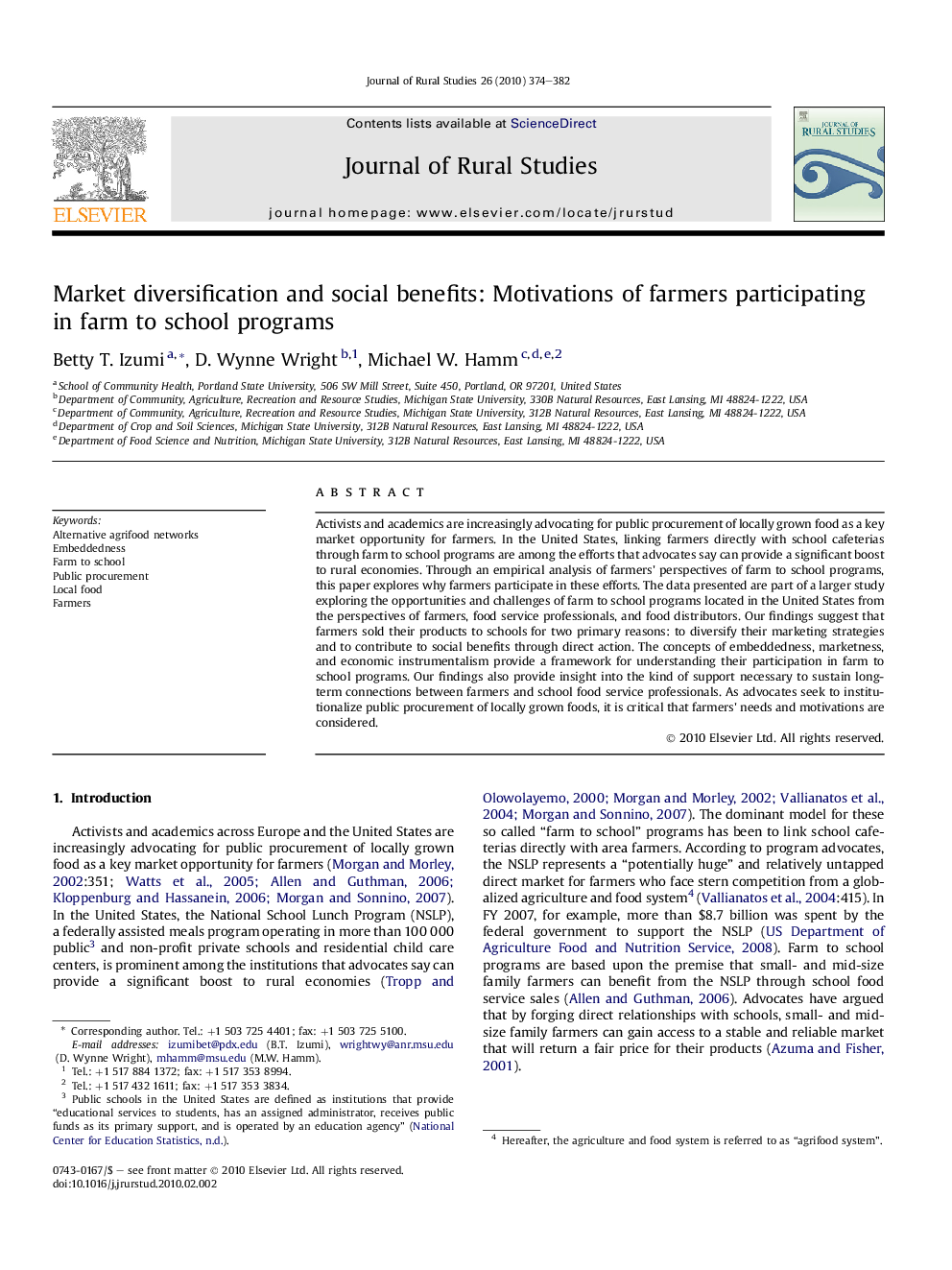| Article ID | Journal | Published Year | Pages | File Type |
|---|---|---|---|---|
| 92761 | Journal of Rural Studies | 2010 | 9 Pages |
Activists and academics are increasingly advocating for public procurement of locally grown food as a key market opportunity for farmers. In the United States, linking farmers directly with school cafeterias through farm to school programs are among the efforts that advocates say can provide a significant boost to rural economies. Through an empirical analysis of farmers' perspectives of farm to school programs, this paper explores why farmers participate in these efforts. The data presented are part of a larger study exploring the opportunities and challenges of farm to school programs located in the United States from the perspectives of farmers, food service professionals, and food distributors. Our findings suggest that farmers sold their products to schools for two primary reasons: to diversify their marketing strategies and to contribute to social benefits through direct action. The concepts of embeddedness, marketness, and economic instrumentalism provide a framework for understanding their participation in farm to school programs. Our findings also provide insight into the kind of support necessary to sustain long-term connections between farmers and school food service professionals. As advocates seek to institutionalize public procurement of locally grown foods, it is critical that farmers' needs and motivations are considered.
